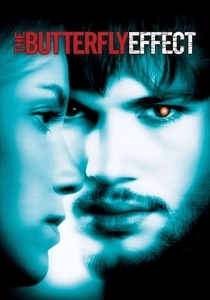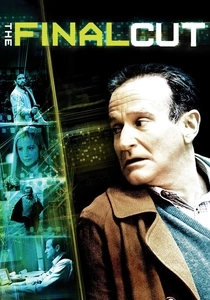Dive into the realm of science fiction where memory isn't just a record of the past but a malleable entity that can be altered, erased, or even implanted. These films delve into the ethical, psychological, and existential questions surrounding memory, offering viewers a thrilling ride through time, identity, and the very essence of what makes us human. Whether it's the haunting beauty of lost memories or the chilling prospect of having your memories tampered with, this collection promises to engage and provoke thought.

Total Recall (1990)
Description: A construction worker undergoes a memory implant procedure only to find himself embroiled in a conspiracy, questioning what's real and what's a memory implant.
Fact: The film was based on Philip K. Dick's short story "We Can Remember It for You Wholesale."
 Watch Now
Watch Now 
Dark City (1998)
Description: A man wakes up with no memory and discovers his city is controlled by beings who can alter reality and memories, leading to a quest for truth and identity.
Fact: The film's visual style was heavily influenced by German Expressionism.
 Watch Now
Watch Now 
Memento (2000)
Description: Following a man with short-term memory loss trying to solve his wife's murder, this film plays with narrative structure to mirror the protagonist's condition, making it a unique exploration of memory and revenge.
Fact: The film was shot in reverse order, and the black-and-white scenes were filmed first.
 Watch Now
Watch Now 
The Butterfly Effect (2004)
Description: A young man discovers he can travel back in time through his childhood journals, changing his past to alter his present, but each change has unforeseen consequences, exploring the ripple effects of memory manipulation.
Fact: The film had several alternate endings, reflecting different outcomes of the protagonist's time-traveling.
 Watch Now
Watch Now 
Eternal Sunshine of the Spotless Mind (2004)
Description: This film explores the concept of erasing painful memories to move on from heartbreak, only to find that some memories are too precious to lose. It's a poignant look at love, loss, and the human desire to forget.
Fact: The film was inspired by a short story by Charlie Kaufman, and the title comes from a poem by Alexander Pope.
 Watch Now
Watch Now 
Paycheck (2003)
Description: An engineer who erases his memory after completing high-security projects wakes up to find he's been paid in seemingly random items, leading him to unravel his past work and the conspiracy surrounding it.
Fact: The film is based on a short story by Philip K. Dick.
 Watch Now
Watch Now 
The Final Cut (2004)
Description: In a world where people's memories are recorded from birth, a "cutter" edits these memories for a final viewing upon death, raising ethical questions about privacy and the manipulation of memory.
Fact: The film was Robin Williams' first foray into science fiction.
 Watch Now
Watch Now 
Inception (2010)
Description: A master of espionage uses experimental technology to infiltrate the subconscious and implant an idea into a target's mind, delving into the layers of dreams and the power of memory within them.
Fact: The film required the creation of new technology to film the zero-gravity scenes.
 Watch Now
Watch Now 
The Adjustment Bureau (2011)
Description: A man discovers that his life is being manipulated by a mysterious group that controls human destiny, including his memories, to keep him on a predetermined path.
Fact: The film was inspired by a short story by Philip K. Dick.
 Watch Now
Watch Now 
Strange Days (1995)
Description: In a near-future Los Angeles, a former cop deals in illegal memory recordings, leading to a dangerous investigation into a murder, exploring the dark side of memory technology.
Fact: The film was one of the first to explore the concept of virtual reality and memory recording.
 30 Days Free
30 Days Free 








